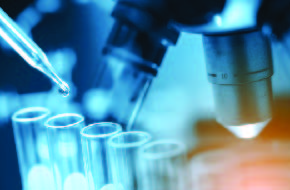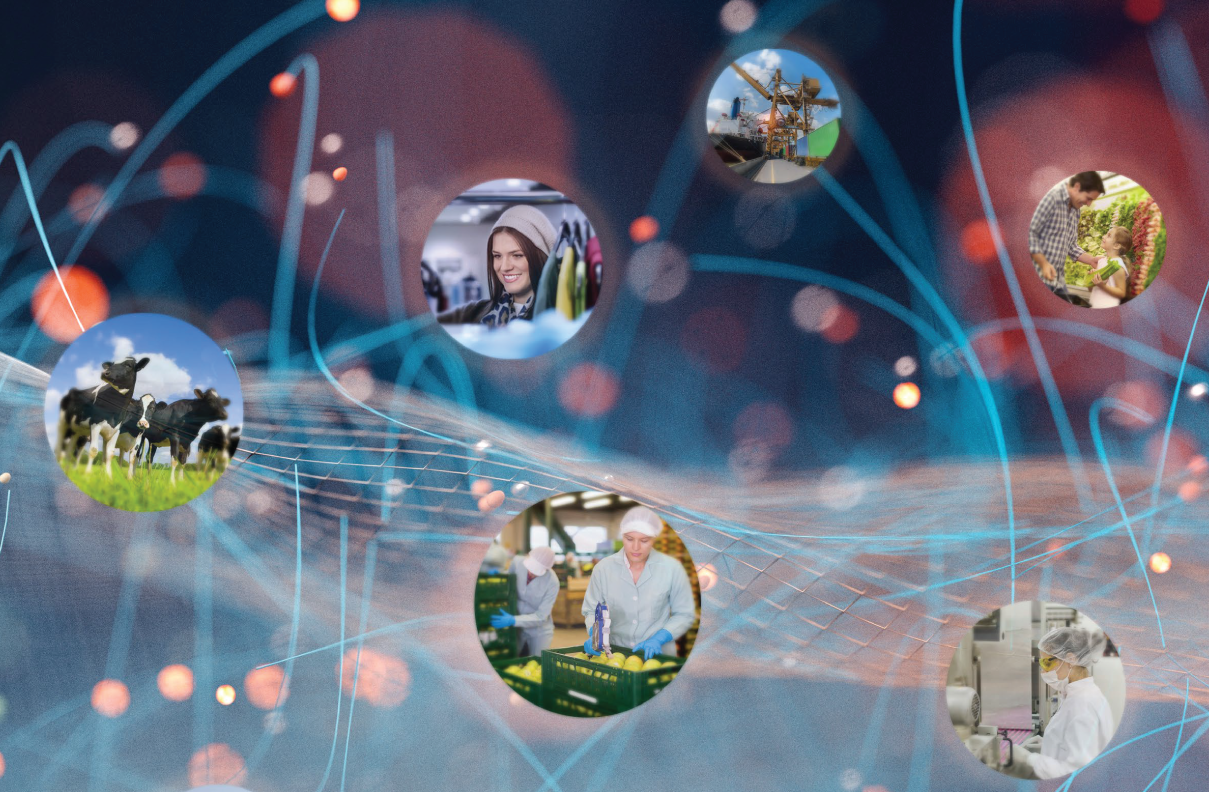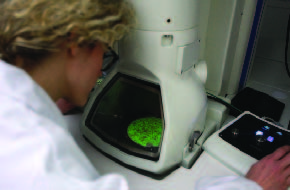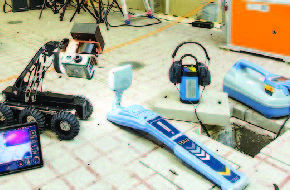
We welcome Georgian Accreditation Center – The Unified National Body of Accreditation (GAC), Georgia, as a Full Member of ILAC.
GAC joined ILAC as an Affiliate member on 21 February 2005 and then became an Associate Member on 11 January 2021. As GAC is a signatory to the EA MLA for the accreditation of calibration and testing laboratories using ISO/IEC 17025, medical testing laboratories using ISO 15189 and inspection bodies using ISO/IEC 17020, GAC has also been granted signatory status to the ILAC MRA and therefore, Full membership of ILAC.
We welcome GAC as a Full Member and look forward to working with our GAC colleagues.
The full list of signatories to the ILAC MRA is available here.

We welcome Systéme Ouest Africain d’Accréditation, Cote D’Ivoire (SOAC WAAS), as a Full Member of ILAC.
SOAC WAAS joined ILAC as an Affiliate member on 17 August 2018 and then became an Associate Member on 7 May 2019. As SOAC WAAS is a signatory to the AFRAC MRA for the accreditation of calibration and testing laboratories using ISO/IEC 17025 and medical testing laboratories using ISO 15189, SOAC WAAS has also been granted signatory status to the ILAC MRA and therefore, Full membership of ILAC.
We welcome SOAC WAAS as a Full Member and look forward to working with our SOAC WAAS colleagues.
The full list of signatories to the ILAC MRA is available here.

09 June 2022 marks World Accreditation Day (#WAD2022), a global initiative established by IAF and ILAC to promote the value of accreditation. This year’s theme is Accreditation: Sustainability in Economic Growth and the Environment.
The world economy relies heavily on natural resources provided by healthy ecosystems, and yet we continue to put these ecosystems through enormous stress and to consume resources at an alarming rate. Accreditation, alongside other quality infrastructure tools including metrology, standardization, conformity assessment and market surveillance, can support the shift to a circular economy and more sustainable forms of production. Use of standards can help organizations adopt more eco-friendly practices, with accredited conformity assessment providing assurance that organizations are meeting requirements and fulfilling claims.
A brochure (link) providing more information is now available on the IAF and ILAC websites, as well as a joint statement by the IAF and ILAC Chairs (link) and an official WAD 2022 poster (link).
In addition, four supporting videos will be released on the IAF-ILAC YouTube channel in mid-May. IAF and ILAC will also be holding a virtual event on 09 June 2022 with more information to be released closer to the date.
The Public Sector Assurance and Business Benefits websites, which contain case studies, research and supporting materials demonstrating the benefits and value of accreditation, can provide more information on how accreditation can support sustainability.
While the COVID-19 pandemic may again disrupt in-person WAD events, we encourage everyone to celebrate with us online using the hashtag #WAD2022, to attend our virtual event and to contact your local accreditation body for further details on local media and online seminars and programs they may be organising. A list of IAF Members is available here, and a list of ILAC Members is available here.
Follow IAF (@IAF_Global) and ILAC (@ILAC_Official) on Twitter, and IAF on LinkedIn (International Accreditation Forum Inc) for the latest updates.

Centre Régional d’Evaluation en Education, Environnement, Santé et d’Accréditation en Afrique (CRESAC), Cote D’Ivoire, is welcomed as an Associate Member of ILAC. CRESAC has been an Affiliate member since April 2016.
We welcome CRESAC as an Associate Member and look forward to continuing working with our CRESAC colleagues.

World Accreditation Day (WAD)
World Accreditation Day will be celebrated on 9 June with the theme:
Accreditation: Sustainability in Economic Growth and the Environment
This theme focuses on how accreditation supports many of the United Nations Sustainable Development Goals (SDGs) including 6, 7, 8, 9, 11, 12, 13, 14, 15.
The poster for #WAD2022 is available from https://ilac.org/news-and-events/world-accreditation-day-2022/ and congratulations are extended to Punyasorn Lumjuan who created this design as part of the competition run by ILAC and IAF earlier this year.
Social media cards for the different SDGs addressed in this year’s theme are also available from the members area of the website for use by members in promoting #WAD2022.
In the near future the Joint Statement from the ILAC and IAF Chairs will also be issued as well as a brochure and video to promote the event.
Follow ILAC and IAF on Twitter for more information about accreditation supporting the implementation of the SDGs in the period leading up to WAD.
The ILAC MRA
Updating of the ILAC documents, in particular ILAC P4, P5 and R6 is progressing well as part of the implementation of ILAC Resolution GA 25.09 to extend the ILAC MRA to include the accreditation of biobanks. The activity will be included in the MRA as a Level 2 activity using, ISO 20387: Biobanking – General requirements for biobanking as the Level 3 normative document.
There are currently 104 signatories to the ILAC MRA representing 105 economies. The ILAC MRA covers recognition for accreditation in the areas of calibration (ISO/IEC 17025), testing (ISO/IEC 17025), medical testing (ISO 15189), inspection (ISO/IEC 17020), proficiency testing providers (ISO/IEC 17043) and reference material producers (ISO 17034). The list of signatories to the ILAC MRA is available from the ILAC MRA Signatory Search.
The scope of recognition of the recognised regions to the ILAC MRA is available from https://ilac.org/ilac-mra-and-signatories/recognised-regional-cooperation-bodies/.
The ILAC MRA Annual Report 2021 and associated infographic will be published next month and will be available from https://ilac.org/publications-and-resources/ilac-promotional-brochures/.
Case studies and research on the recognition of the ILAC MRA by governments and regulators are available from the Public Sector Assurance website. This website a collaborative initiative of the INetQI members is currently being updated with a significant number of new case studies collected in support of the WAD 2022 theme – Accreditation: Sustainability in Economic Growth and the Environment.
The Business Benefits website, also another successful collaboration of the InetQI partners, is a reference website designed to demonstrate the monetary value of standards, conformity assessment and accreditation for businesses.
ILAC Membership
The ILAC membership as at 7 April 2022 is:
The ILAC membership consists of 151 organisations from 129 different economies worldwide. Over 81,700 laboratories, 12,200 inspection bodies, 500 PTP and 200 RMP are accredited by the ILAC Full Members (signatories to the ILAC MRA).The latest statistics and graphs on the number of accreditation bodies, accredited laboratories, inspection bodies, PTPs and RMPs are available from the ILAC Facts & Figures page
ILAC Meetings
The ILAC-IAF meetings including all committees and working groups continue to be held on-line.
The April 2022 mid-term meetings have been scheduled as a virtual series of meetings and registration is currently open for these meetings that will be held over the next two weeks. Some Committees and working groups that organise and manage their own on-line meetings have already met earlier this month including the Joint ILAC and IAF Executive Committees (JEC) where the key topics discussed included progress on the Single Organisation Project and future joint meetings.
The Joint IAF/ILAC annual meetings in 2022 are however scheduled to be held in person at Le Westin, Montreal, Canada from 2 – 11 November 2022.
Information on future meetings and events, including major regional meetings, can also be found in the ILAC Calendar.
ILAC Liaisons and other International Activities
ILAC carries out a number of regular liaison activities with our international partners, participating in both the routine meetings (currently on-line) that underpin these relationships as well as any relevant ad hoc events that are scheduled throughout the year. The current list of ILAC liaison activities includes:
ILAC Liaisons with ISO and ISO/CASCO Policy Committees
ILAC Liaisons with ISO/CASCO Working Groups/Task Forces
ILAC Liaisons with Other Organisations
Information on ILAC’s partnerships, including copies of communiqués, joint procedures, press releases and MoUs, is available from the ILAC Partnerships page.
ILAC thanks all of the ILAC liaison officers, and their organisations, who volunteer their time to assist ILAC in carrying out these activities for the benefit of all ILAC members.
ILAC Secretariat
Stephanie Sun, the ILAC Project Officer is currently on maternity leave until July 2022.
The ILAC Secretariat staff currently includes: Annette Dever, Sharon Kelly, Hannah Yeoh, Rebecca Sheehan, Rose De Rota (0.7 FTE), Joelle Nicolas (0.8 FTE) and Stephanie Sun (maternity leave July 2021- August 2022).

Announcing the International Conference “The Lab of the Future”, organised by ALPI-ASSOTIC in collaboration with EUROLAB on the occasion of the EUROLAB General Assembly 2022 & Accompanying Events.
The Conference will take place on 19 May 2022 from 14:15 to 18:00 at Centro Congressi Cavour – Via Cavour, 50/a Rome (Italy). For those of you who will not be able to attend in person, there will be the possibility to follow the Conference remotely.
The Conference is intended as an opportunity to share some in-depth information on digitization, developments in digital metrology, but also unpostponable needs, such as the sustainability of laboratory activities and IT security. The Conference, therefore, aims to point out that sometimes the future cannot wait, and, in some cases, the future is now.
To attend the Conference, please register here by Friday, 29 April 2022: https://forms.gle/n7hExth8XzjG6Uyk7
Find attached the full program and list of speakers. Regular conference updates will be published on our website and LinkedIn page.

A collaboration between NATA, JAS-ANZ and GS1 Australia has produced a ground-breaking new report for industry and government. The report has given rigorous attention to the question of the digital future of conformity assessment.
The benefits of digitisation and interoperability between systems
The use of digitisation and interoperability between systems has proven to deliver elevated levels of supply chain efficiency. In Australia, however, there is an absence of digital standards for identifying, capturing, and sharing product compliance and credentials as they move throughout the supply chain. The report proposes a process to simplify the way product testing and certification is managed, using digital authentication and tracking of certificates to improve national productivity and Australia’s international competitiveness.
The key benefits:

Since the update in the last issue of the newsletter, Eurachem has continued to operate effectively as a virtual network.
In November we published a joint Eurachem/CITAC guide on ‘Assessment of performance and uncertainty in qualitative chemical analysis’. The guide was presented at an online workshop on 19-27 January, co-organised by CITAC, Eurachem and the Health Sciences Authority (HSA) Singapore. As well as introducing the guide, the workshop had sessions focussing on laboratory medicine, and chemical and forensic analysis. Feedback was very positive from the over 500 participants who attended from 75 different territories, with over 70% of respondents indicating they expected to implement the new guide in future work. Recordings of the four sessions can be accessed via the Eurachem website (https://www.eurachem.org/index.php/events/completed/394-wks-aqa2022). The picture shows Workshop Scientific Committee member Dr Tang Lin Teo (HSA) collecting results from one of the online surveys used during the workshop.
We continue to actively encourage the translation of Eurachem guidance documents and in the past year a number of translations of guides and leaflets have been published – see the Eurachem News pages at https://www.eurachem.org/index.php/news/newsarts for past announcements. The image shows some of the recent translations of information leaflets.
Although the pandemic situation finally appears to be improving, ongoing uncertainty in the first months of the year meant that the Executive Committee took the decision to (once again) run the General Assembly and associated workshop in May as online events. Hosted by the Georgian Laboratory Association (GeLab), on behalf of Eurachem-Georgia, the workshop on ‘Quality assurance challenges of measurements from field to laboratory with a focus on ISO/IEC17025: 2017 requirements’ will take place on 16-18 May. This will be followed by the General Assembly on 19-20 May. Workshop registration is open at http://gelab.org.ge/en/Event/Eurachem_2022.
Recently, the organisers of the 10th Eurachem Workshop on ‘Proficiency Testing in analytical chemistry, microbiology and laboratory medicine’ took the difficult decision to postpone the event until 2023. It is now scheduled for 25-28 September 2023 in Windsor, UK (see https://eurachem-pt2023.org/ for details).
Eurachem has longstanding collaborations with a number of organisations that share common interests in measurement quality. During the past year, the Executive Committee has been formalising some of these relationships by establishing new or updated Memorandums of Understanding. The MoUs provide a framework for future collaboration, with a view to optimising resources to ensure maximum benefit for both organisations’ members and the wider analytical community. In addition to the MoU signed with NMKL (Nordic Committee on Food Analysis) reported in the last issue, we have recently signed MoUs with Eurolab and the Europe Section of AOAC International.
One area where collaboration is planned is around the issue of validation of sampling activities. The Eurachem Working Groups on ‘Method Validation’ and ‘Uncertainty from Sampling’ have formed a joint task group to discuss and ultimately develop guidance on this topic. Although the activity is in its early days, a number of representatives from our liaison organisations have already joined the group.
If you would like to keep up to date with Eurachem activities you can:
• Follow our LinkedIn page https://eurachem.org/linkedin
• Follow us on Twitter @EurachemEurope
• Subscribe to our news mailing list https://www.eurachem.org/subscribe for occasional email updates
Dr Tang Lin Teo (HSA) – member of the Scientific Committee for the workshop on ‘Assessment of performance and uncertainty in qualitative chemical analysis’.
Some of the recently translated leaflets.

Recently, Cofrac* developed a new accreditation scheme for a unique test method based on artificial intelligence to detect asbestos fibers in the air.
The French company ITGA** is specialising in sample and test activities as part of the search for asbestos and other chemical agents. It has been accredited to the NF EN ISO/IEC 17025 standard since 1996 for asbestos. Gradually, in order to follow new regulations and best support its customers, ITGA applied for their accreditation to be extended to capture activities: industrial hygiene, indoor air quality, legionella and lead.
ITGA is also active in research and development. Within this scope, it developed a new test method delegating the detection of asbestos fibers to artificial intelligence: a service incorporated within the framework of air monitoring, in relation to the Public Health and Labor Codes.
To promote this large-scale project, the laboratory wished to accredit this new method, unique to the field. When it judged that the method was mature enough, ITGA asked Cofrac for an extension of accreditation in order to highlight its competence and expertise in asbestos search, and thus reassure its customers about the reliability of its services.
ITGA’s previous requests for extensions of accreditation were based on existing methods. So, for this first specific development of accreditation, Cofrac supported the laboratory. ITGA followed the different stages of the process, until its notification of accreditation in November 2021.
Artificial intelligence for asbestos detection is an innovation that opens the way to other perspectives that Cofrac stands ready to support!
* The French accreditation committee (Cofrac).
** Accreditation 1-5970, detailed list available on www.cofrac.fr

Like many urban cities around the world, the underground environment of Hong Kong houses complicated and extensive arrays of utility networks. These networks cover sewers, water mains, electricity, gas and telecommunications, etc. To maintain their proper function, it is crucial to conduct regular and effective underground utility (UU) surveys. It is also important to get a precise blueprint of the utility network under a construction site before commencing any underground works.
To improve the quality of underground utility surveys and facilitate planning of underground works, the Hong Kong Polytechnic University has recently developed a series of local test standards that can be utilised for these surveys. The test standards consist of six non-destructive testing methods for surveying, imaging and diagnosis (NDTSID) including (1) electromagnetic pipe cable locating, (2) ground penetrating radar, (3) Laser scanning survey, (4) visual inspection, (5) leak detection by acoustic methods, and (6) flow survey & monitoring for drains/sewers. Conformity assessment bodies may apply these test methods in conducting underground utility survey. To help ensure the quality of these surveys, Hong Kong Accreditation Service (HKAS) has also launched a new accreditation service for NDTSID in November last year. This new programme is based on ISO/IEC 17025 and the supplementary criteria document established by the HKAS Task Force on UU Survey, which is a special expert committee set up under the Accreditation Advisory Board’s Working Party of Construction Material Testing. The supplementary criteria document lays down accreditation requirements specific for NDTSID.
Local government departments, such as those responsible for water supplies and drainage services, are keen on applying NDTSID in their construction projects. They will likely require contractors carrying out these surveys to obtain relevant accreditation. A high demand for such accreditation service is thus anticipated. HKAS has already received some applications for these tests and is actively processing them.